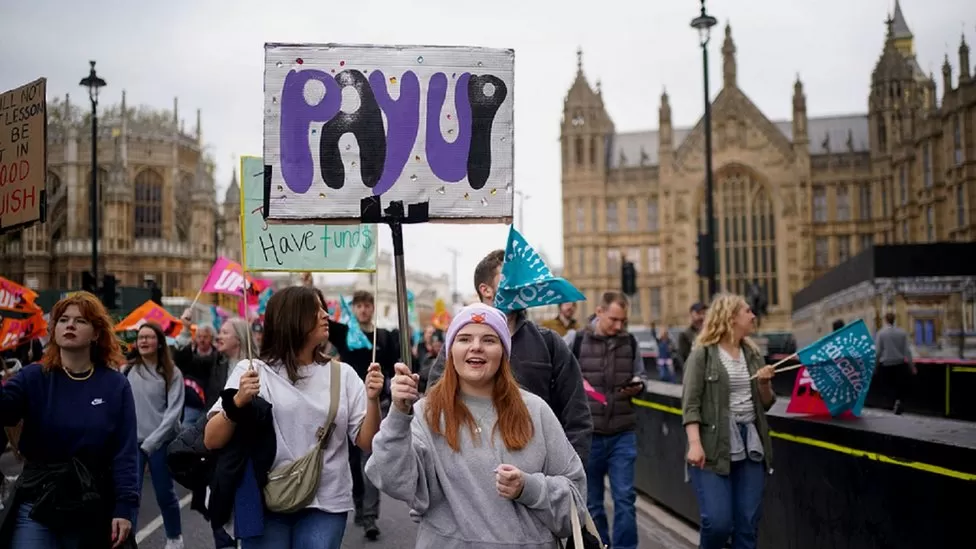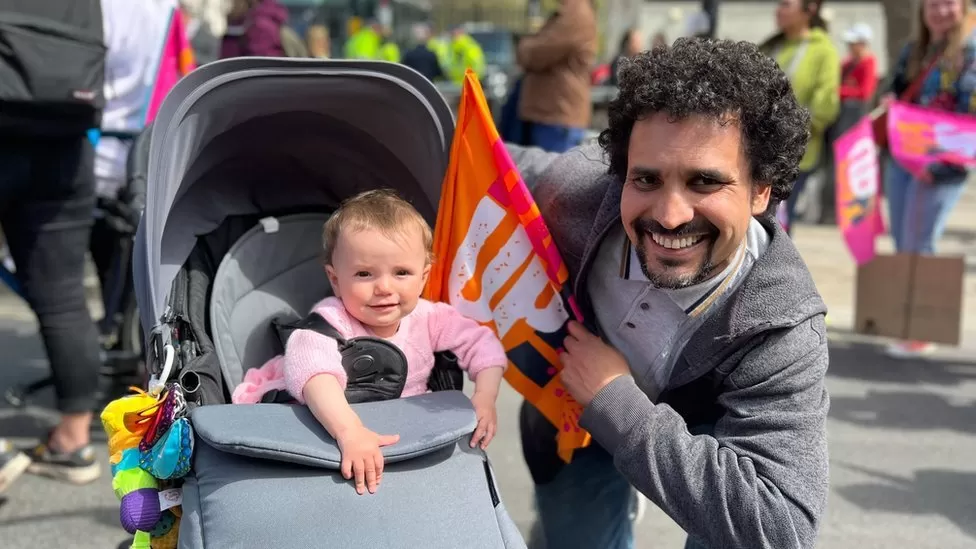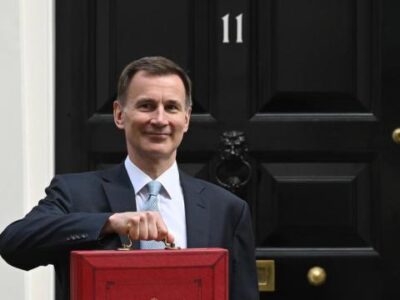More schools than ever were unable to fully open in England’s latest teachers’ strike, Department for Education (DfE) data suggests. Teachers belonging to the National Education Union (NEU) took part in their fifth day of national strike action on Tuesday. Members of four teaching unions have rejected a pay offer that ministers said was “fair and reasonable”. The NEU is considering three further days of strike action in the summer.

Based on the 16,400 schools which submitted attendance data:
- only 45.3% of schools were fully open on Tuesday
- 49.8% were open but restricting attendance
- 4.9% were closed.
The DfE data is an estimate of state-funded primary, secondary, and special schools. The worst-affected day in terms of school closures remains 1 February – the first day of the NEU’s national strike action – when 9.3% of schools were estimated to have shut. Richard Garratt, who joined a demonstration outside Westminster with his eight-month-old baby, said he was struggling to make ends meet. “I feel annoyed, I was originally a teaching assistant, then I became a teacher and on paper, my money’s increasing but in reality because of prices rising I am worse off than I was 10 years ago,” he said.

Exam season begins on 15 May in England and the NEU says it is supporting arrangements for schools to be able to have enough staff on strike days so exam students can attend. A-level student Katie, 18, is studying English language, history and music. She said she sympathised with striking teachers because they have “ridiculous dedication”. “If you spoil equipment, you know [replacing it] will come out of teachers’ own money,” she added.
‘They are already behind’
The DfE data suggested big regional differences in how schools were affected by the strike on Tuesday. An estimated 11% of schools closed in London, compared with 2% in the West Midlands. Paul Williams, a secondary school teacher from Greenwood Academy in Birmingham, was on strike but went into school to teach students from his GCSE maths classes.
He said his main reason for striking was because school funding has “deteriorate[d] massively over the last decade”. The amount of extracurricular activities his school can provide has therefore become “very restricted”. Speaking to BBC Radio 5 Live, Sarah in Worcester said her daughter was in school, because she was sitting her GCSEs this year, but that being there was “pretty pointless” as other teachers were taking her classes. The “number-one priority” should be exam students and how this was affecting them, she said, adding: “They are already behind in school.”

The NEU is calling for an above-inflation pay rise which does not come from schools’ existing budgets. Kevin Courtney, joint general secretary of the NEU, said the dip in the number of fully-open schools during the 2 May strike day “shows that support is not falling”. He added that pupils’ education had been affected badly by Covid “and that is why we are calling for this investment in their education”. All four teaching unions have rejected a pay offer which included a £1,000 one-off payment for this year, and a 4.3% pay rise for most staff in September, with starting salaries reaching £30,000. They argued the increase was not fully funded, meaning schools would have had to make cuts elsewhere to afford it. But the DfE described it as a “fair and reasonable offer”, and said that schools would receive an extra £2.3bn over the next two years.
The decision on what to pay teachers will now be made by the pay review body. Both Labour and the Liberal Democrats want to see negotiations between the unions and the government restart. Aside from the NEU’s action, the three other unions in the dispute are holding ballots on strike action. If their members vote to strike, the unions have agreed to team up, which could mean full school closures in the autumn term. A DfE official said co-ordinating strike action was “unreasonable and disproportionate, especially given the impact the pandemic has already had on students’ learning”.
![]()





